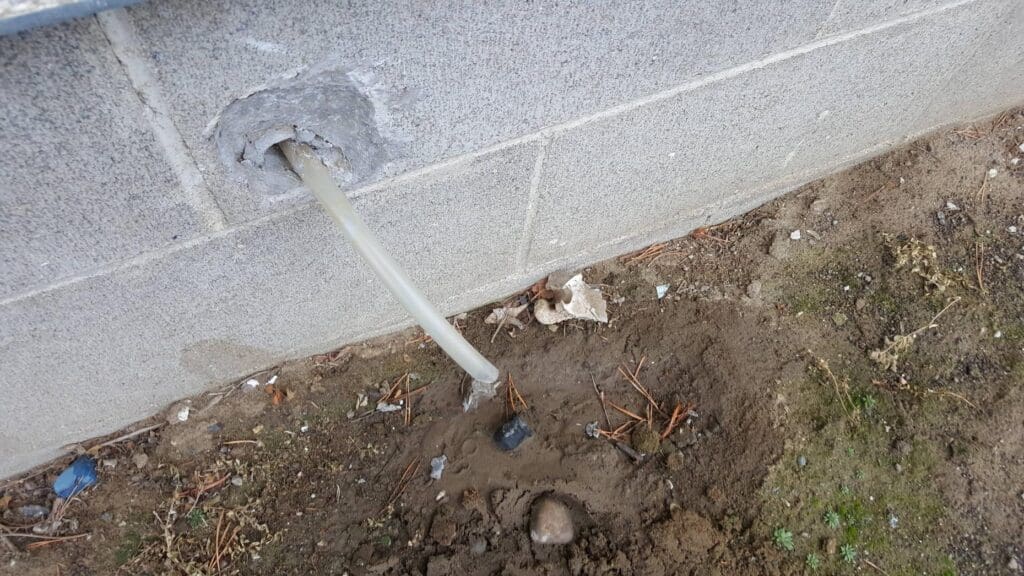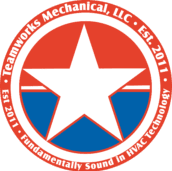Keeping Your HVAC System Running at Peak Performance
Keeping your HVAC system in good shape is important for your comfort and to avoid problems. Here are some easy steps to maintain it:
- Change Air Filters: Replace your air filters every one to three months. Dirty filters make your system work harder and use more energy.
- Clean Condenser Coils: Dirt on coils makes your system less efficient. Clean them regularly to ensure they work well.
- Professional Maintenance: Get your HVAC system checked by a professional yearly. They can find and fix small issues before they become big problems.
- Upgrade Your Thermostat: Consider a programmable or smart thermostat. They adjust your system based on your schedule, saving energy.
Understanding Condensate Drainage
Understanding condensate drainage is vital for maintaining a healthy HVAC system. When your air conditioner or heat pump cools your home. It creates water, which is called condensation. This water needs to be removed properly to avoid problems. Condensate drainage is about getting rid of this extra water from your HVAC system. Usually, the water collects in a pan and then goes out of your home through a pipe. But if something blocks this drainage, issues can happen.
Problems with condensate drainage can cause water leaks and mold. It can even harm your HVAC system. You need to know the signs of bad drainage. If water is gathering around your indoor unit or strange smells in your home. To stop these problems, you need to take care of your system. Clean the condensate drain pan and line regularly to remove any dirt. You can also think about using a condensate pump to help with drainage. By understanding how condensate drainage works and being proactive. You can avoid expensive repairs and keep your HVAC system working well.
Common Issues with Condensate Drainage
Condensate drainage is super important. It can face some problems that mess with your HVAC system. Here are the usual suspects:
- Clogged Drain Line: One big issue is a blocked drain line. Dirt, debris, and algae can build up in the drain line, making it clogged. This blockage stops the water from draining properly, causing leaks and possible damage. Regularly checking and cleaning the drain line can stop this problem.
- Faulty Condensate Pump: The condensate pump is in charge of pushing water out of your HVAC system. If it's not working right, water can back up and create leaks. Maintaining your condensate pump often is important to make sure it's working fine.
- Damaged Drain Pans: Drain pans can crack or rust, causing leaks. Regular checks can help you spot any damage, and if you find any, it's best to replace the drain pan.
- Bad Insulation or Installation: Sometimes, the drain line isn't insulated or installed incorrectly. Poor insulation can make condensation form on the outside of the drain line. It can lead water to dripping and potential damage. Proper installation and insulation can prevent this.
Clogged Condensate Lines:
A big problem often faced is clogged condensate lines. Dust, dirt, and algae can build up in these lines over time, blocking the water flow. If the water isn't drained properly, it can flow back into your HVAC system. This can lead to damage and make your system work less effectively. It's important to keep these lines clear to avoid such issues.
Pump Failure:
Some HVAC systems use a condensate pump to move water away from the unit. If the condensate pump stops working. Because of electrical issues, mechanical breakdowns, or blockages. Water can get trapped inside the system. This can cause various problems and affect the efficiency of your HVAC system.
Improper Slope and Installation:
When your HVAC system is installed, it's important to make sure the condensate lines are sloped correctly. This slope helps water flow away from the unit. If the installation isn't done right, water might gather in the lines, causing issues.
Frozen Condensate Lines:
In cold places, condensate lines can freeze. When they freeze, water can't move like it should, which might damage the system.
Insufficient Maintenance:
Taking care of your HVAC system is important to stop condensate drainage problems. If you don't look after your system, dirt and other problems can build up and cause drainage issues.
Addressing Condensate Drainage Issues
If you're facing problems with your HVAC system's condensate drainage, there are ways to fix it. You can get help from professionals like Teamworks Mechanical in Denver, CO. Here's what you can do:
First, check if there are any blockages in the drain line. You can use a wet/dry vacuum or a pipe snake to clear any debris causing the issue. Also, inspect the condensate pump to make sure it's working well. If it's not, think about getting a new one.
If you see any cracks or rust in the drain pan, replace it to prevent more leaks. Also, make sure the drain line has proper insulation to stop condensation and water damage.
If you're not sure how to fix the condensate drainage problems, it's a good idea to call a professional HVAC technician. They have the skills to find and solve any issues with your condensate drainage system.
By dealing with these problems quickly, you can save money on repairs and keep your HVAC system running smoothly.
Regular Maintenance:
To stop problems with condensate drainage, it's important to maintain your HVAC system regularly. This means cleaning the condensate lines, checking for blockages, and making sure everything is working well. Teamworks Mechanical provides thorough maintenance services to keep your system working properly.
Clearing Clogs:
When you find clogs, it's important to remove them quickly. This means getting rid of anything blocking the condensate lines so that water can flow properly. Professionals can do this job efficiently.
Pump Maintenance:
Absolutely, regular checks on condensate pumps are very important. Make sure the pump is working well and fix any problems quickly to avoid pump issues.
Insulation and Frost Protection
Certainly, insulating the condensate lines in cold areas is vital. It stops them from freezing and causing problems. Teamworks Mechanical can check your system. We offer insulation options to safeguard your HVAC system in the chilly weather.
Paying attention to condensate drainage is crucial for a well-functioning HVAC system. Regular maintenance and help from professionals like Teamworks Mechanical in Denver, CO. can keep your system efficient and problem-free. Don't wait for issues to pop up; be proactive in maintaining your HVAC system. That way, you can enjoy comfort in your home all year round.





















